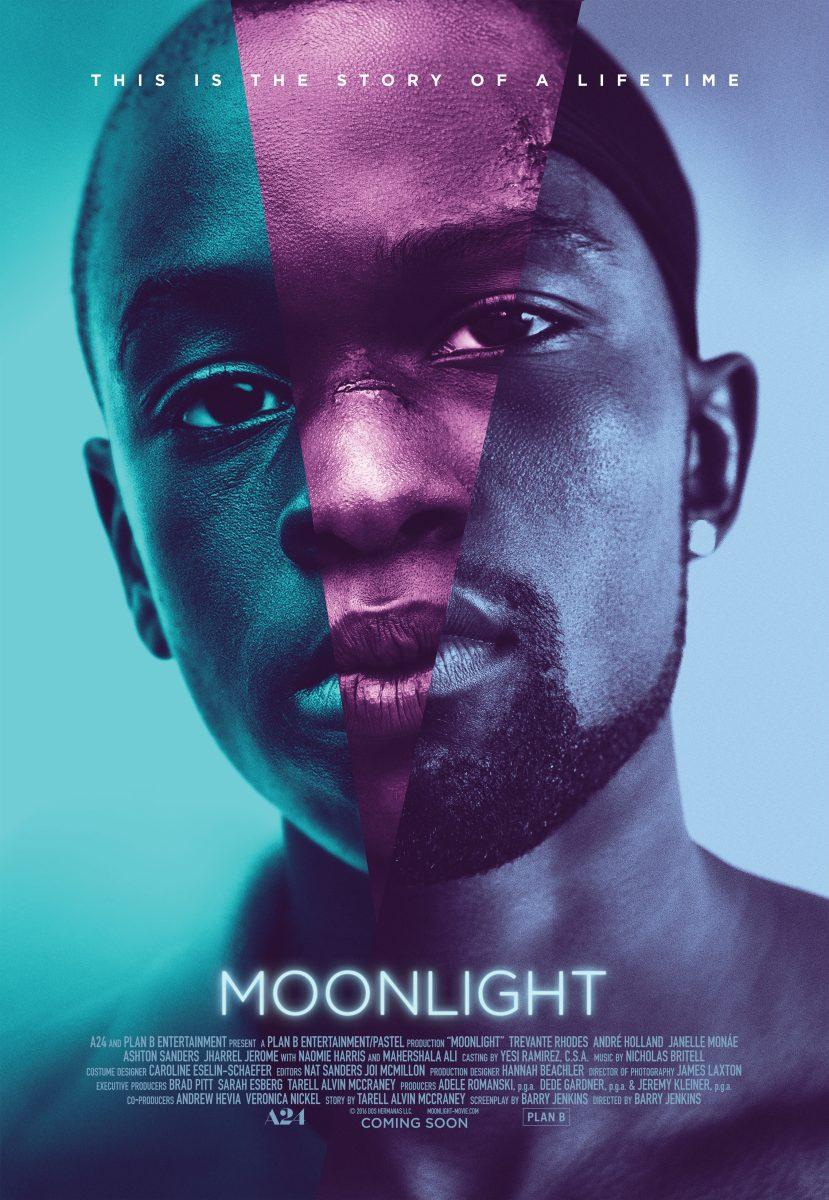“Moonlight” premiered at Telluride Film Festival as an indie stand-out, but soon became the most well-received film of the year. Mild spoilers ahead.
The film is about Chiron’s life and is told in three acts. It is an exploration of his upbringing in a Miami suburb in the 90s, black masculinity and sexual identity. Director Barry Jenkins and company handle the loaded prompt with finesse and deliver one of the best films of the decade.
Three actors play Chiron’s character at different phases of his life -— his childhood (“Little” played by Alex R. Hibbert), adolescence (Chiron played by Ashton Sanders) and adulthood (“Black” played by Trevante Rhodes).
Tarell Alvin McCraney, the film’s screenwriter, and Jenkins were both raised in Miami’s Liberty City neighborhood. “Moonlight” is an adaptation of McCraney’s shelved play “In Moonlight Black Boys Look Blue” with added elements of Jenkins’ personal experience.
Little (Hibbert) lives with his mother (Naomie Harris). Juan (Mahershala Ali) and his girlfriend Teresa (Janelle Monàe) serve his ideal needs for parenting and he often flees to their residence. Juan saves Little from a hoard of bullies in the first act and takes him in with open, guiding arms. From that moment forward, he and Teresa looked out for Little and treat him as their own son.
Chiron’s mother is introduced to crack while he’s young and her addiction, which grows with him, impacts his surroundings. Harris’ performance stands out, among the rest of the excellent acting, as the best. In each act, she channels the maturity required to portray the character at different ages with nuanced gestures and tone of voice.
James Laxton’s pinhole cinematography blurs around the edges, focusing on the subjects. The characters stand tall and shine bright in a comfortable hue of Miami’s standard neon palette. Nicholas Britell’s score knit the colors on the screen and the performances together in organ and violin compositions. The quiet direction Jenkins took allowed for McCraney’s words to speak loudly through the characters and the story.
Chiron’s adolescence is turbulent with bullies in the schoolyard and his mother’s drug addiction. He finds comfort in visiting the now-widowed Teresa and his conversations with his friend Kevin, who is involved with the story in each act and grows up with Chiron by three different portrayals. Since his days as “Little,” Kevin (Jaden Piner) looked out for Chiron. Kevin allows Chiron to be himself, in their passerby conversations. In their most intimate encounter, Chiron confirms his sexuality in his youth with Kevin and violently leaves it.
The second act of Chiron’s life ends with a juvie sentence after a physical altercation with his bully. He is forced to leave behind everything he liked in Liberty City from Teresa to his newfound intimate connection with Kevin.
Chiron (Rhodes) in his adulthood becomes what he remembers of Juan. He deals drugs, wears a du-rag, sports grills and drives the same car as Juan. Chiron goes by the name Kevin called him in his youth, “Black.” He is molded by the masculinity that he grew up with — masculinity that didn’t allow him to reflect his true self.
In the third act, Black and Kevin (Andre Holland) reconnect and assess their lives with each other. Chiron retraces his steps back to Miami after spending 10 years in Atlanta and he’s set to explore what could have been and what it can be, on the shoulders of Kevin. His intimacy with Kevin picks up where it left off.
“Moonlight” is stylistic and cannot be generalized to a particular significance with its subject matter. It follows traditional narrative breaks that are weaved through the aesthetics of the structure. As a whole, it bridges distant connections among characters to one or two scenes.
Jenkins’ vision for the film stands out, and from the casting to the narrative changes, everything fits together. The synergy of the production brings the effect of live theatre to the silver screen. The cast’s chemistry and commitment to his vision makes “Moonlight” magical.







